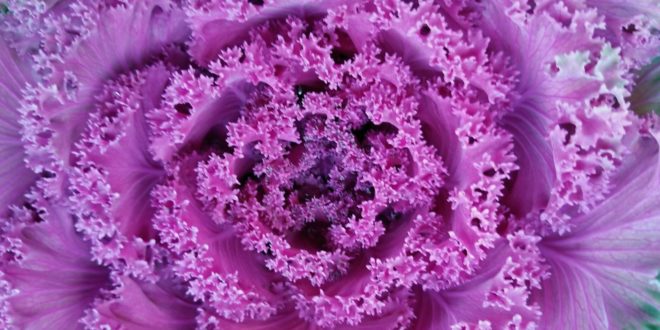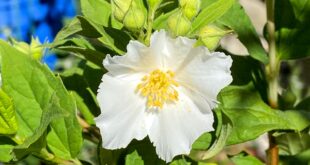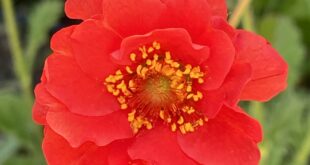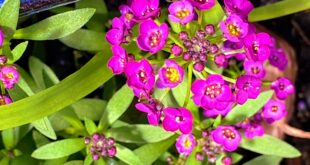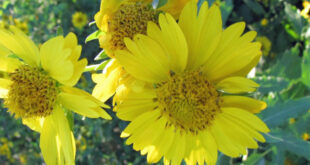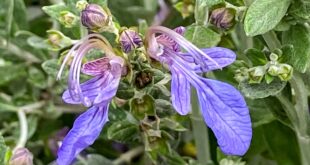Ornamental kale plants can make a wonderful red, pink, purple, or white show in the cool season garden, with very minimal care. Because the winter of 2018/2019 in Sunnyvale was unusually cool and wet, the ornamental kale we planted in November did great. Only now, in early March, is it flowering.
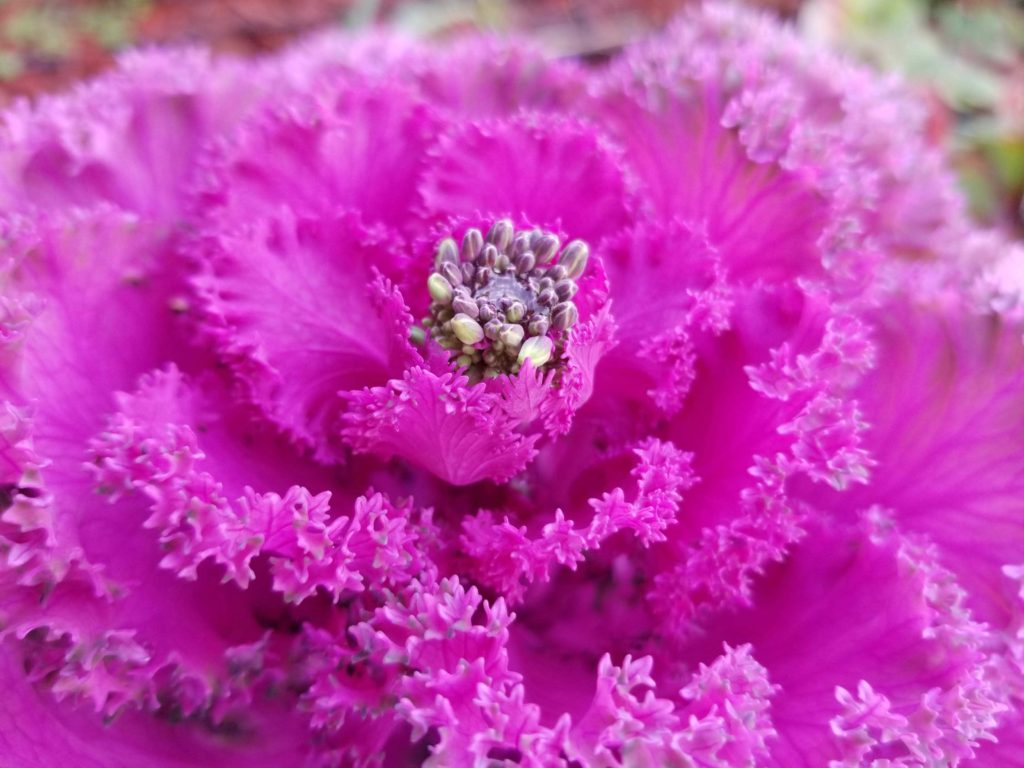
Ornamental kale plants (Brassica oleracea) and their cousin, the ornamental cabbage, were developed for their spectacular colors and are not edible. Although they are sometimes called flowering kale, the plants rarely put out real flowers. The color is all in their extravagantly ruffled and feathered leaves. Ornamental kale plants are best used as an annual in spring and fall gardens, and in container gardens.
How to grow Ornamental Kale
Growing flowering kale can be done by starting seeds or with started plants purchased from the store.
Because the seeds need light to germinate, they can be sprinkled directly on the surface of medium in flats or pots. For the fall garden, seedlings should be started by the first of July. The pots can be placed in the refrigerator for a couple of weeks before sprouting, but this is not necessary. Kept moist, seedlings should sprout in three to five days and ready to place outside by the middle of August. The seedlings should be spaced 12-20 inches apart, depending on the mature size of the variety.
You can also purchase plants directly from the store. Sometimes they don’t grow much after they’ve been in pots, so you might want to purchase the size you need. Plant the potted kale so the lowest leaves are flush with the ground. The main consideration for flowering kale growing conditions is that the plants need cool weather to develop the best leaf color. They’re considered hardy in USDA growing zones 2-11, but since hot weather inhibits leaf color and causes the stems to elongate, it’s best to grow them in the spring or fall. Because they can stand temperatures well below freezing, ornamental kale often lasts through the winter.
Ornamental kale likes full sun and rich, well drained, slightly acidic soil with a soil pH between 5.8 and 6.5. Kale can be planted in the garden or in containers.
Flowering Kale Care
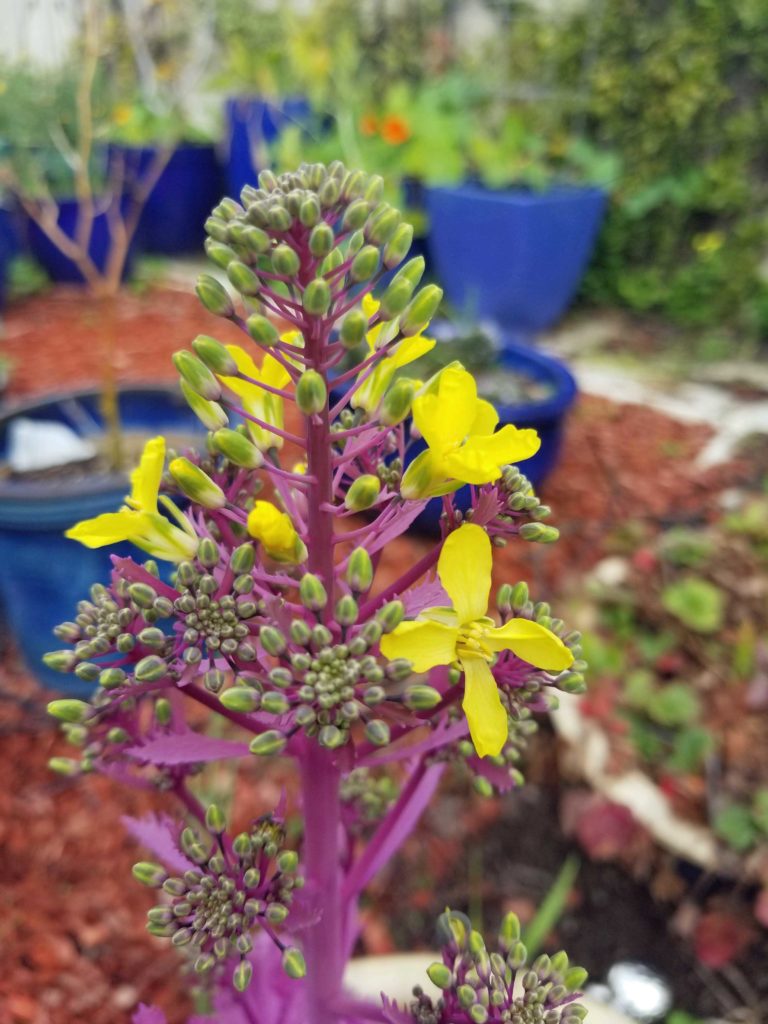
Flowering kale care is pretty simple. Rule number 1 is not to let the plants dry out. They can’t stand overly dry conditions so they need to be kept well-watered. Too much fertilizer can interfere with color and cause stem elongation, so fertilizing kale at planting time should be enough. Use a balanced fertilizer (ratio 3-1-2 or 1-1-1) with micro-nutrients. Cut off flower stems as soon as they appear. Pests and diseases are pretty much the same as those that affect edible kale and are treated accordingly. Now that you know how easy flowering kale care is, you’ll be able to look forward to your own display next fall and on into the winter.
